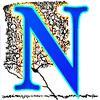It was a book that originally piqued my interest in neuroscience and in the ten years I’ve studied neuro, what I’ve learned from books has stuck with me longer than what I’ve learned in classes, lectures, conferences.
Why do books stick with us? Are well-written books crafted for the structure of our minds—creating interesting stories that we can remember and connecting newly learned facts in our semantic memory with a narrative we store in our episodic memory?
Regardless, because of my belief in books and how they’ve benefited me, I’m compiling a list of my favorite books about neuroscience and psychology:
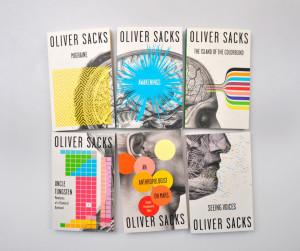
-
The Man Who Mistook His Wife for a Hat and Other Clinical Tales – Oliver Sacks – Neurology
The Man Who Mistook His Wife for a Hat really was a life-changing book for me. After taking Psychology for the rumored easy A, doing horribly, and then studying like crazy to bring up my grade, I discovered I was genuinely interested in psychology. A friend recommended this book, which catapulted my interest from the psychology to neuroscience, and the hard problem of consciousness—how does consciousness emerge from our material brain, and how can changes to our or brain result in bizarre experiences of consciousness?
Oliver Sacks is a neurologist and writer, and in The Man Who Mistook His Wife for a Hat each chapter is a case study describing an interesting patient, and reflecting on them in a literary style. The eponymous character in The Man Who Mistook His Wife for a Hat suffers from a visual agnosia, a neurological condition where although his vision is largely intact—he can draw pictures of what he sees—he can no longer interpret his vision. Leaving his appointment, he mistakes his wife who is standing in the corner of the room for a coat rack, her head for a hat, and he ends up yanking up on her head before realizing the mistake.
Sacks is full of interesting observations and tangential stories, which he includes in the footnotes for curious readers. The Man Who Mistook His Wife for a Hat is the quintessential Sacks book, but all of his books are amazing.
Other Sacks books about neuroscience:
Hallucinations
Musicophilia
The Mind’s Eye
Island of the Colorblind
Seeing Voices
Migraine
Awakenings
An Anthropologist on Mars
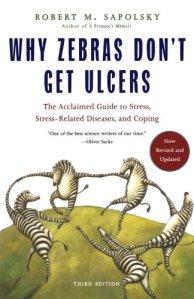
-
Why Zebras Don’t Get Ulcers: The Acclaimed Guide to Stress, Stress-Related Diseases, and Coping – Robert Sapolsky – Neurobiology/Primatology
Sapolsky does for neurobiology what Sacks did for neurology, explaining basic science and how it impacts every day life. Working as a primatologist in Africa during graduate school, Sapolsky has lived an incredible life, and developed an interesting worldview. His experience, scientific expertise, and delightful and often hilarious writing voice makes his books easy to read despite their sometimes complex subject matters.
Why Zebras Don’t Get Ulcers discusses the differences between the normal, natural stress animals experience in the wild and the chronic stress of modern society as well as social issues such as child abuse and poverty affect our biology.
Other Sapolsky books about neuroscience:
The Trouble with Testosterone
Monkeyluv
Primate’s Memoir: A Neuroscientists Unconventional Life Among the Baboons – Part neuroscience and primatology book, part grad school memoir, and part Africa travel memoir.
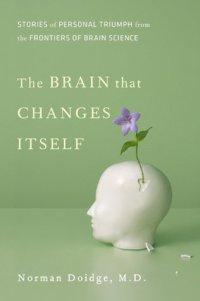
-
The Brain That Changes Itself: Stories of Personal Triumph from the Frontiers of Brain Science – Norman Doidge – Neuroscience
The Brain That Changes Itself is an exploration of neuroplasticity, the recently discovered concept that our brain is malleable and constantly remodeling itself through our life—and that it can therefore adaptive to new situations, sometimes in surprising ways.
A Psychiatrist and Psychoanalyst, some of Doidges stories are accounts of patients making dramatic recoveries through neuroplasticity-inspired interventions. For example, following a stroke that leaves a Surgeon in his 50’s with an almost un-usable arm doctors counter-intuitively good arm. This intervention doesn’t just forces him to practice and strengthen the arm affected by the stroke, but it actually prevents maladaptive changes in the brain from occurring. It prevents the good arm from “colonizing” the damaged parts of the brain that controlled the weak arm, which would have resulted in a more permanent deficit, and in fact allows some of the good arm’s brain areas to assist in the function of the weakened arm. Other stories focus on the scientists who discovered this science, intriguing findings, and interactions between humans and technology that can restore sight, balance, and even grant us extra-human sensory abilities.
Doidge has also recently published a new book about neuroscience:
The Brains Way of Healing
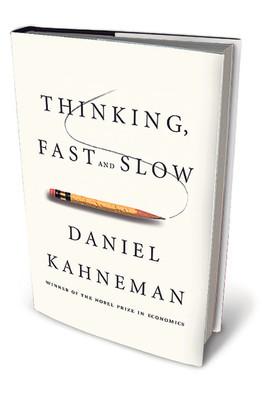
-
Thinking, Fast and Slow – Daniel Kahneman – Psychology / Behavioral Economics
Kahneman is a Psychology PhD, but he won a Nobel Prize in Economics, for showing how humans behave irrationally. This book is a combination big idea book and memoir, that includes the best hits of Kahneman’s scientific career and review of psychological fields that interest him. It may sound unwieldy when I describe it like that, but reading it is a breeze as Kahneman is charming, thoughtful, and an amazing writer.
It’s main idea is the existence of two parallel modes of thinking—a fast, irrational system that approximates truth with many biases, and a slower more rational system that is less susceptible to cognitive errors but also tires easily. He discusses when we use each system and how we can switch our thinking to the slower mode. This books is a great introduction into experimental psychology and behavioral economics, and might help you make your big life decisions more rationally.
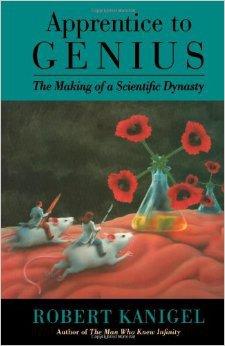
-
Apprentice to Genius: The Making of a Scientific Dynasty – Robert Kanigel – Journalism / History of Science / Sociology
Kanigel tells the remarkable story of the birth of modern pharmacology during World War 2, as scientists attempted to create anti-malarials after the axis cut off America’s access to quinine. It follows a chain of scientists and their students, which includes a Nobel Prize Lauriate, and two Lasker winners (an American award that often precedes the nobel), who among other things characterized adrenaline and discovered the opioid receptor.
More than just a study about scientific achievement and genius, Kanigel is deeply interested in the human beings who do science, and how clusters of talented scientists making important discoveries emerge. He investigates how scientists benefit from windfalls of new findings, the rich-get-richer system that concentrates funding and scientific talent, how we often misattribute the collective works of laboratories to individuals, and the importance of mentorship and transmission of laboratory culture.
If you want to know how science really works–the human struggle of it all: personalities, ego, banality, this is the best book I’ve read. I often wish this book was required reading for all science students and scientists.
Other Good Reads:
- In Search of Memory: The Emergence of a New Science of Mind – Eric R. Kandel – Kandel’s book is a memoir that goes from his Jewish childhood in Nazi-occupied Vienna, to his work on sea slugs that uncovered synaptic plasticity. When I graduated college, every neuroscience major was given a copy of this book.
- Outliers: The Story of Success – Malcom Gladwell – famous for it’s often misunderstood 10,000 hour rule, Outliers explores the factors that drive success: practice and being ahead of the curve.
- My Stroke of Insight: A Brain Scientists’s Personal Journey – Jill Bolte Taylor – a neuroscientist’s story of recovery, after she undergoes a stroke that left her unable to talk
- The Language Instinct – Stephen Pinker – An introduction to linguistics, that explains why every generation reinvents language, and why African American Vernacular English, AKA ebonics, is just as valid of a language as any other.
- Mapping the Mind – Rita Carter – An illustrated guide to the brain and some of the early research into the localization of function within it. Though perhaps a bit outdated at this point, I think it’s still an excellent guide for learning neuroanatomy and the basics of cognitive science.
- On Intelligence – Jeff Hawkins – Hawkins is one of the people responsible for the PDA, the precursor to smart phones, and he was similarly prescient in neuroscience, unfortunately academic departments at the time were not. Hawkins saw the relationship between cognition and computing and tried to pursue a degree in computational neuroscience before it was a thing. Here he outlines his ideas about thinking and computation.
- Phantoms in the Brain: Probing the Mysteries of the Human Mind – V.S. Ramachandran – Ramachandran is an amazing writer and speaker with a knack for finding and studying the most interesting stories in neuroscience. Up there with Sacks and Sapolsky, he is one of the greatest writers in neuroscience.
- The Emotional Brain Revisited – Joseph E. Ledoux – a fairly technical book that reviews neuroscience relating to emotions and how they are processed in the brain.
- Fixing My Gaze – A Scientist’s Journey into Seeing in Three Dimensions – Susan Berry – A neuroscientist who suffered from strabismus, in other words she was crossed-eyed, and therefore did not develop depth perception and a 3-d sense of the world. She learns about an old and now-neglected therapy that allows her to experience the world in three dimensions for the first time as an adult.
I believe reading more makes us more intelligent—but I don’t feel the same about even the best, most perspective-altering, life-enriching movies. I am just old-fashioned and misguided, or is there something about the written word: it’s interactivity, the attention it demands, or its abstract linguistic nature that enhances our mind? Or maybe it is just an issue of, “you are what you eat,” and you benefit from filling your head with the deliberately chosen language of thoughtful people.
What do you think of reading? Do you have books you think I should add to this list? If any neuroscience books have changed your life (or even if you just enjoyed them, haha), please leave in a comment below! I’m always looking for new books on my favorite topics.
